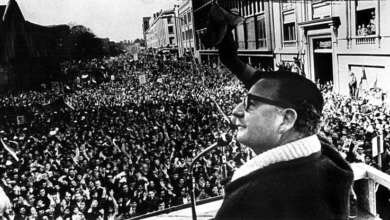In spite of the threats, disturbances, violence and boycott by the most reactionary forces of Bolivia, on Dec. 9, 165 of the 255 members of the Constituent Assembly approved the country’s new constitution. It will be submitted to a popular referendum in 2008.
The Constituent Assembly was an end result of the historical demand put forward by Bolivia’s Indigenous people, farmers and workers. Until the victory of the first Bolivian Indigenous president, Evo Morales, these sectors had been excluded largely from the political and economic decision-making process. They also were removed from social and cultural institutional decisions and support. This legitimate popular organism has allowed those once excluded to exert their right to decide their country’s future.
The new constitution represents a resolute attempt to decolonize Bolivia, to protect its territorial sovereignty and to transform the situation of economic inequality and political and cultural exclusion for the oppressed and exploited people.
Bolivia’s workers, farmers and Indigenous people are the authentic owners of the country’s resources and territory. The first article of the constitution recognizes this. It characterizes the Bolivian state as “multinational, communitarian, free, autonomous, decentralized and unitary.” Consequently, it is an effort to guarantee the right to self-determination of Indigenous nationalities, and at the same time, to stop the secessionist attempts of the Bolivian oligarchy.
In addition, the constitution proposes transformations in the areas of production, consumption and administration of natural and power resources. It also proposes more equitable land distribution and a series of social reforms that would benefit the majority of the Bolivian population.
Bolivia’s tiny capitalist class, who benefit from the capitalist system of private property, is resisting this opening toward a multinational, participative and inclusive democracy that questions the economic exploitation of the workers and farmers, and the oppression and ethnic discrimination of Indigenous peoples.
The oligarchs—composed mainly of wealthy landowners and the financial-commercial bourgeoisie—have unleashed their fury against the constitution, especially about article 398, which refers to the future of large estates. A popular referendum will decide whether individual private owners will be allowed to own 10,000 or 5,000 hectares of land. Today, there are Bolivian landowners who own up to 1 million hectares.
Since Morales became president, the oligarchy has being developing a secessionist movement. Its main objective is to formalize the power that the oligarchy has being exerting de facto in the departments (similar to states) of Santa Cruz, Tarija, Beni and Pando, and to divide Bolivia in two.
In fact, the oligarchy-led Autonomic Provisional Assembly of Santa Cruz approved the Autonomic Statute, through which it is attempting to declare the independence of these departments. These moves completely disregard the new constitution and the political order governing Bolivia today.
Behind the secessionists’ proposal is their class interest. They want to achieve political and economic control over Bolivia’s richest regions, which contain natural gas, mining, animal and food resources.
The central point of the secessionists is to regain absolute control over natural and power resources, as well as control of the land. They want to determine who can own property and how much they can own.
The secessionists essentially want to have the jurisdiction to decide about resource questions, to determine taxes, to control foreign investment and exporting markets, and to operate without any sort of national oversight. In other words, they wish to establish a parallel state to the one headed by Evo Morales.
The Bolivian ruling class is determined to dismantle all the gains obtained by Morales’s government. Not only is it pursuing the creation of a parallel state, it also is creating its own private police force. It is promoting repressive organizations, like the fascist Unión Juvenil Cruzeña, whose goal is to terrorize Indigenous people and workers.
Morales is optimistic about the prospects ahead. He is placing confidence in the force of the oppressed to move forward in the struggle: “We must go now to our last battle that is the referendum. I am convinced that we are going to win.”
The final victory will not come through a referendum, especially under the present circumstances of growing class polarization in Bolivia. But this step forward is a crucial test for the deepening movement of the Bolivian masses.






